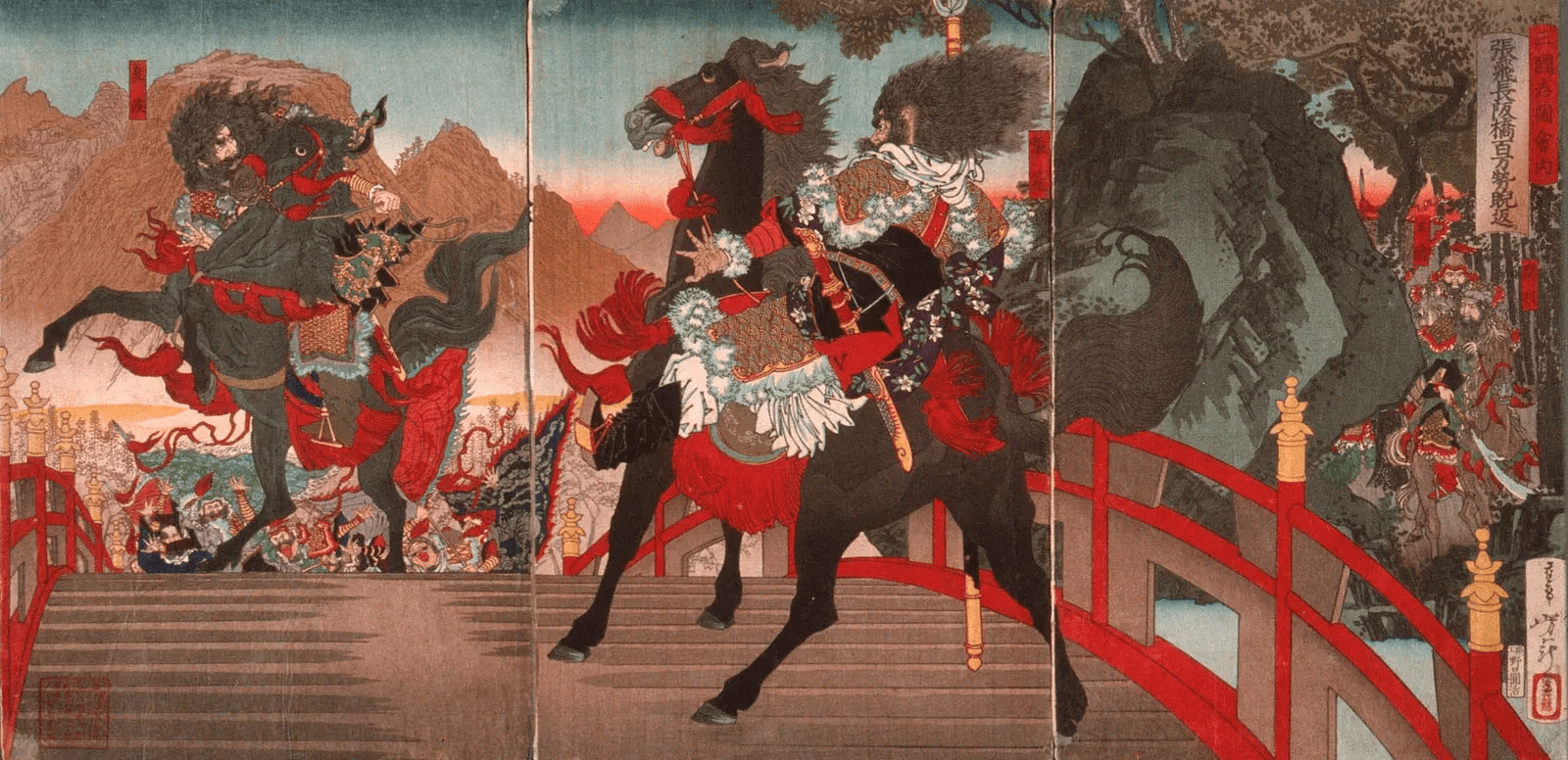15.10.2024
An epic of masculine greatness: The Romance of Three Kingdoms
Discover why The Romance of the Three Kingdoms is regarded as the greatest masculine epic, chronicling the fall of the Han Dynasty and the rise of three kingdoms in ancient China. Learn about its cultural influence, power struggles, and enduring lessons in life and masculinity.

Words: Corey Savage
Scene from Romance of the Three Kingdoms
Los Angeles County Museum of Art, Herbert R. Cole Collection (M.84.31.42a-c), www.lacma.org
The Romance Of Three Kingdoms is a historical novel written in the 14th century by Luo Guanzhong that chronicles the fall of Han dynasty and the rise of three kingdoms that vie in an epic struggle to rule all of China. Not only is this classic a literary masterpiece of the East, this is one of the greatest epic that demonstrates the true potential and the greatness of men.
The Premise
The story features hundreds of characters and numerous secondary stories that spans a century from the Yellow Turban Rebellion to the eventual re-unification of China. The main characters are: Liu Bei, the honorable and compassionate descendant of the founder of Han dynasty who rises to prominence with the help of his sworn brothers, Zhang Fei and Guan Yu, in spite of his humble background; Caocao, the villainous hero whose combined brilliance and ruthlessness puts Machiavelli to utter shame and would eventually become the arch rival of Liu Bei; and the Sun family who are said to be direct the descendants of the famous author of the Art of War, Sun Tzu. Of course, those are just the few men who represent the three kingdoms, Shu, Wei, and Wu. There are dozens of more memorable characters of importance throughout this epic.
In spite of the title, we don’t see the three kingdoms established until about halfway point in the story. Up until then, we witness numerous factions of warlords and nobles fight one another to expand their own influence as the emperor no longer possesses any real authority. You see men rise and fall with their strengths, weaknesses, ambitions, duty, and fortune.

